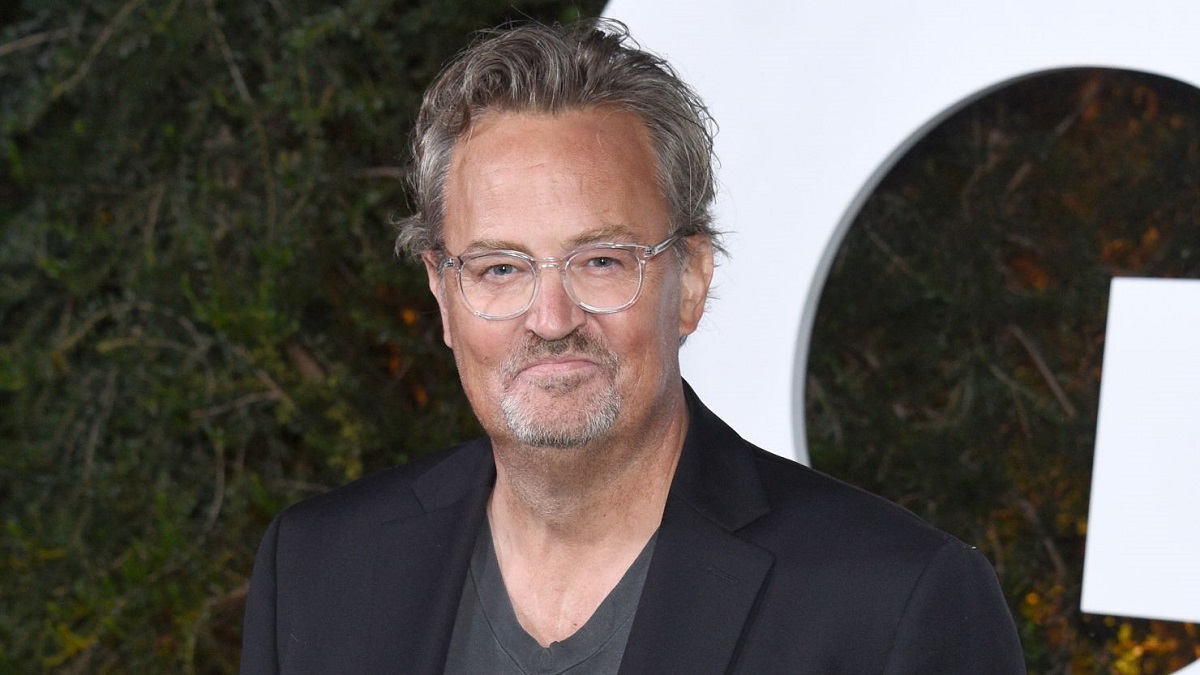The Role Of Doctors In Matthew Perry’s Death: The Intersection Of Medical Responsibility And Celebrity Addiction

Matthew Perry: Matthew Perry, the beloved actor best known for his role as Chandler Bing on the iconic TV show Friends, passed away in late 2023 under circumstances that sparked widespread conversation about addiction and the role of the medical community in the treatment of celebrity patients.
Perry’s struggle with substance abuse was well-known, as he had been open about his years-long battle with alcohol and prescription medication addiction. His death brings attention to an essential yet delicate issue: the role of doctors in managing, treating, and sometimes unintentionally exacerbating celebrity addiction.
In this article, we will explore the intersection of addiction, medical responsibility, and celebrity culture. We will examine how doctors can play a pivotal role in both the recovery and downfall of stars like Matthew Perry and investigate whether more stringent measures should be in place to prevent abuse.
Matthew Perry’s Struggles With Addiction

Matthew Perry’s story of addiction is tragically similar to that of many other celebrities who have grappled with substance abuse, though few have been as transparent about their struggles. Perry’s issues began in the late 1990s when he became dependent on prescription painkillers following a Jet Ski accident. His addiction to Vicodin spiraled into a much deeper problem, leading to further abuse of alcohol and other prescription medications. Perry openly discussed how his substance abuse had significantly affected his life and career, including stretches during the filming of Friends when he was unaware of his surroundings due to intoxication.
Matthew Perry, In interviews, Perry described his addiction as being something of a cycle: He would seek help, manage a period of sobriety, only to relapse again under the pressures of both his profession and personal life. Despite entering rehabilitation multiple times and working with numerous doctors, Perry’s addiction persisted for decades. His death in 2023, though tragic, was a reflection of the profound challenges he faced and the limitations of the medical system in preventing such an outcome.
The Role Of Doctors: Medical Responsibility And The Ethics Of Treatment
Matthew Perry, Doctors play a critical role in the management of addiction, especially when it involves prescription medication. The question that arises from Matthew Perry’s story is to what extent his physicians were responsible for enabling or exacerbating his addiction. In cases involving celebrities, who often have easier access to controlled substances and medical professionals, the balance of care becomes particularly fraught.
Prescription Practices And The Celebrity Privilege
Matthew Perry, One of the core issues in the management of addiction among celebrities is the often-unchecked access to powerful prescription medications. Celebrities, by virtue of their wealth and status, can often secure prescriptions for drugs that might be more tightly regulated for ordinary patients. Doctors may feel pressured—whether directly or indirectly—to provide such prescriptions due to the power dynamics at play. Some physicians may prioritize maintaining a relationship with their celebrity patients, fearing the loss of a high-profile client or the potential blowback from refusing to prescribe certain medications.
In Perry’s case, the ease with which he could access prescription drugs may have played a significant role in his prolonged addiction. Though it is impossible to say with certainty how much influence his doctors had on his eventual death, it is clear that the medical community’s handling of celebrity addiction has historically been flawed. Many doctors fail to recognize or act upon the warning signs of addiction, especially when their patients are wealthy and influential. This creates a dangerous environment where the normal boundaries of patient care become blurred.
Enabling Vs. Treating: The Fine Line

Medical professionals face a significant challenge when treating patients with substance use disorders. This is particularly true for high-profile individuals, who may seek to use their influence to acquire medications outside the bounds of typical medical practice. Physicians must walk a fine line between providing legitimate care and enabling harmful behaviors. The ethical responsibility of doctors to “do no harm” includes recognizing when a patient is at risk of addiction and taking steps to prevent further harm, even if it means making difficult decisions, such as refusing to prescribe certain medications or recommending stricter monitoring.
In some cases, doctors may enable addiction by not addressing it directly. For example, a doctor might prescribe opioids to a patient without fully exploring alternative pain management solutions or monitoring for signs of abuse. Additionally, some physicians may fear alienating their patients and, as a result, continue to prescribe medications to avoid confrontation. This is particularly true in the world of celebrity, where patients may have access to multiple doctors and clinics, effectively “doctor-shopping” to obtain the drugs they desire.
The Power Of Celebrity And The Media’s Role
Matthew Perry, Another complicating factor in the treatment of addiction among celebrities is the role that fame and the media play in shaping the narrative around substance abuse. Celebrities are often viewed as being immune to the same rules and boundaries that govern ordinary people. They are often surrounded by individuals who may enable their destructive behaviors, whether through fear of losing access to the celebrity’s world or out of a desire to maintain favor.
The media, for its part, often sensationalizes addiction stories, portraying them as moral failings or as part of a larger narrative of personal destruction. This can make it even more difficult for celebrities to seek help, as they are forced to navigate the public’s gaze while simultaneously battling their internal struggles. Matthew Perry’s openness about his addiction was somewhat rare in Hollywood, where many celebrities are reluctant to admit their issues for fear of damaging their careers. Yet even with this transparency, Perry struggled to escape the cycle of addiction, a testament to how deeply entrenched and powerful these issues can become.
Toward A Better Approach: Combating Celebrity Addiction
Matthew Perry’s death, like the deaths of so many other celebrities who succumbed to addiction, highlights the need for systemic change in how doctors and the medical community handle the treatment of addiction, particularly among high-profile patients. There are several steps that could be taken to improve care and reduce the risk of harm:
Stricter Prescription Guidelines: There must be stricter guidelines in place for prescribing addictive medications, especially for patients with a history of substance abuse. Physicians should be required to perform regular assessments and to explore non-addictive alternatives where possible.
Continuity Of Care: Doctors should focus on long-term care strategies rather than short-term fixes. This means providing comprehensive addiction treatment plans that include counseling, monitoring, and support beyond just medication management.
Collaboration Among Physicians: A key factor in preventing doctor-shopping is encouraging collaboration and communication among physicians. Implementing a system in which doctors can share patient information (with the patient’s consent) could help prevent abuse by ensuring that no single patient is able to obtain multiple prescriptions from different doctors.
Accountability And Education: The medical community must also take steps to educate doctors on how to handle patients with addiction issues, particularly in high-pressure situations involving celebrities. Ethical guidelines should be reinforced, and doctors should feel empowered to refuse potentially harmful treatments without fear of retribution.
Public And Media Perception: Finally, changing the public perception of addiction—viewing it as a medical condition rather than a moral failure—is crucial in supporting those who seek help. The media plays a significant role in shaping these narratives and should focus on responsible reporting that emphasizes recovery rather than scandal.
Conclusion
Matthew Perry, The death of Matthew Perry serves as a somber reminder of the challenges that come with addiction, particularly for high-profile individuals. While the exact role of doctors in Perry’s death remains unclear, the broader question of medical responsibility in treating celebrity patients must be addressed. The intersection of addiction, fame, and medical care is complex, and finding the right balance between providing necessary treatment and preventing abuse is critical. Only through greater awareness, better education, and more stringent practices can the medical community hope to better serve patients like Matthew Perry and prevent future tragedies.
Also Read:
Matthew Perry’s ‘Friends’ Co-Stars Reminiscence About Late Actor




